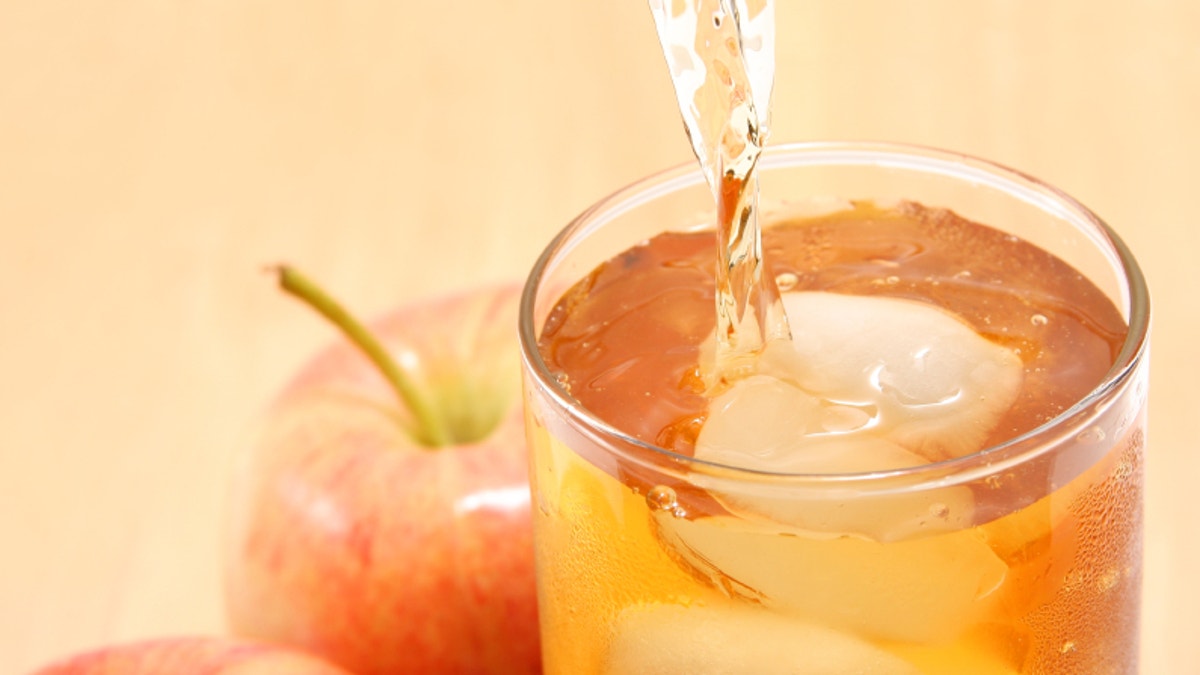
Just about two months after Dr. Mehmet Oz reported he found potentially dangerous levels of arsenic in apple juice, Consumer Reports released the details of its own investigation, which found 10 percent of sampled fruit juices contain arsenic and lead levels exceeding the federal drinking-water standards.
Consumer Reports tested 88 samples of apple and grape juice from stores in New York, New Jersey and Connecticut. Ten percent had arsenic levels more than the 10 parts per billion (ppb) limit and 25 percent had lead levels that exceeded the five ppb limit allowed for bottled water, as enforced by the U.S. Food and Drug Administration.
Brands included Apple & Eve, Great Value, Mott's, Walgreens and Welch's.
Video: Apple Juice Increases Risk of Cancer, Diabetes
According to Consumer Reports, the arsenic was inorganic, which means it’s a human carcinogen.
In September, Oz told viewers on his show that certain brands of apple juice can be dangerous because they contain high levels of arsenic. Oz claimed that his team tested 50 different brands of apple juice, and they all contained a high element of arsenic.
The FDA was quick to contest the report, saying that all apple juice sold in stores is safe. The agency said the testing was inaccurate because Oz tested for both organic arsenic, which is not harmful, and also inorganic arsenic. The results of testing for both combined, according to the agency, led to the conclusion of levels being dangerously high.
The FDA sent a letter to The Dr. Oz Show saying that "we have advised you that the test for total arsenic DOES NOT distinguish inorganic arsenic from organic arsenic."
“The FDA believes that it would be irresponsible and misleading for The Dr. Oz Show to suggest that apple juice contains unsafe amounts of arsenic based solely on tests for total arsenic," the letter also stated.
Related: Arsenic in Your Kids' Apple Juice?
However, Consumer Reports looked at an analysis of a database spanning five years from the National Center for Health Statistics’ National Health and Nutrition Examination Survey. The analysis suggested that juices may contribute to dietary arsenic exposure, and according to mounting evidence, repeated exposure can lead to serious health issues.
The FDA has limits in place for arsenic and lead levels in bottled water, as well as drinking water, but when it comes to juices, there are no standards.
According to the FDA, if a fruit juice sample has 23 ppb or more of arsenic (this is considered the agency's ‘level of concern’), the agency will retest the sample to find out exactly how much is inorganic. However, that number is not mandatory.
Consumers Union, an advocacy group, is asking the FDA to set a better standard – three ppb for total arsenic and five ppb for lead in juice. According to the Consumer Reports investigation, these numbers are attainable.
The FDA said on its website earlier this month it had tested 70 samples of apple juice and concentrate over a six year period in an effort to test for specific toxins. Later, the agency released eight test results that were previously undisclosed for apple juice samples from that data containing total arsenic levels of 23 ppb or higher.
Click here to read more about the FDA testing.
The FDA website states that it “considers the general consumption of fruit juices, including apple juice, to be safe.”
However, an FDA spokeswoman told Consumer Reports that the entire sample should have been posted at the same time, and it is “developing procedures to ensure that in the future, data that are posted indeed represent the complete set.”
The FDA’s website also shows results of samples in its Total Diet Study program. This looked at 134 composite apple juice samples from 1991 to 2009, and a quarter of those samples tested at 10 ppb or higher, with five percent containing 23 ppb or more of total arsenic. According to the FDA spokeswoman,the majority of samples tested below the FDA’s “level of concern.”
Consumers Union said that level of concern doesn’t take into account the risks of skin, lung and bladder cancer that can occur from repeated exposure to arsenic.
Dr. Manny Alvarez, senior managing health editor of FoxNews.com, said arsenic levels in juice – at any level – should not be tolerated.
“I don’t want to sound like an alarmist,” he said in September when Oz’s report first surfaced, “but just look at the growing levels of learning disabilities, autism spectrum disorders and other diseases that seem so prevalent today as compared to decades ago.”
